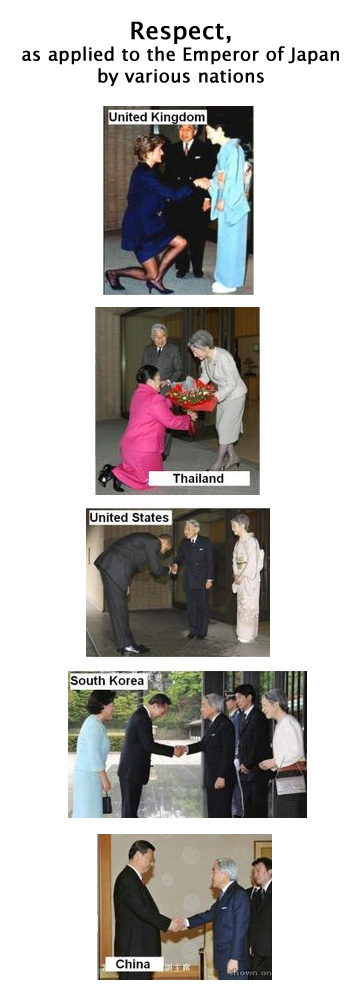|
| |
|
| |
|
|







|
|
TCHS 4O 2000 [4o's nonsense] alvinny [2] - csq - edchong jenming - joseph - law meepok - mingqi - pea pengkian [2] - qwergopot - woof xinghao - zhengyu HCJC 01S60 [understated sixzero] andy - edwin - jack jiaqi - peter - rex serena SAF 21SA khenghui - jiaming - jinrui [2] ritchie - vicknesh - zhenhao Others Lwei [2] - shaowei - website links - Alien Loves Predator BloggerSG Cute Overload! Cyanide and Happiness Daily Bunny Hamleto Hattrick Magic: The Gathering The Onion The Order of the Stick Perry Bible Fellowship PvP Online Soccernet Sluggy Freelance The Students' Sketchpad Talk Rock Talking Cock.com Tom the Dancing Bug Wikipedia Wulffmorgenthaler |
|
bert's blog v1.21 Powered by glolg Programmed with Perl 5.6.1 on Apache/1.3.27 (Red Hat Linux) best viewed at 1024 x 768 resolution on Internet Explorer 6.0+ or Mozilla Firefox 1.5+ entry views: 1668 today's page views: 492 (17 mobile) all-time page views: 3386533 most viewed entry: 18739 views most commented entry: 14 comments number of entries: 1226 page created Fri Jun 20, 2025 11:18:16 |
|
- tagcloud - academics [70] art [8] changelog [49] current events [36] cute stuff [12] gaming [11] music [8] outings [16] philosophy [10] poetry [4] programming [15] rants [5] reviews [8] sport [37] travel [19] work [3] miscellaneous [75] |
|
- category tags - academics art changelog current events cute stuff gaming miscellaneous music outings philosophy poetry programming rants reviews sport travel work tags in total: 386 |

| ||
|
- Ecclesiastes 1:9 Since Mr. Ham still isn't ready - it appears he is having a hard time getting a lawyer, since they are understandably wary of him - it falls to me to stand in yet again. Again On The Web About a month ago, I mentioned in passing Facebook's less-than-stellar record towards privacy, even by online standards. Then, a week later, Google+ was officially launched (yes, I know I'm not an early adopter), with one of its major features being "Google Circles", which allows users to avoid broadcasting their weekend escapades to their parents or bosses, as so often accidentally happens in Facebook's by-default all-friends-are-equal ideology. Commies. My first impression was, wow, eCircles is back. For those who weren't around in the heady days of the dot-com boom, eCircles was an early community-building (what we call social network nowadays) service, which collapsed more than a decade ago. I haven't been able to dredge up any screenshots of its interface to determine whether it actually organized users into literal circles - the bones of Internet pioneers are buried deep - but it's a good bet that the terminology was used. But wait, wait, Facebook introduced Friend Lists back in late 2007, which theoretically fulfil the same objective as Circles. Unfortunately, it appears to be little more than an afterthought, with only 5% of users actually using it. In summary, Google+ was designed for users to classify their friends from the beginning. Facebook, while it is perfectly capable of the same, isn't, which shows that in building a site (or any application, for that matter), yelling about a feature is far more important than merely having it around. One question is why Facebook didn't automatically sort its users' contacts into groups, given that they already use such information to suggest new friends, and have not shown themselves to be too concerned about small details like privacy. In fact, relations like "family" and "schoolmates" are almost trivially deducible from basic profile information, and analysis of post/comment traffic should quickly yield reasonably well-separated clusters of contacts. Indeed, an iPhone app called Katango already does that, though Facebook of course should be able to put a superior implementation into place, given how much more information (and historical activity) they have access to. I hope they get to it soonish, instead of opening a sidebar list of my friends out of the blue and asking me to reconnect with them. Another thing that Facebook might want to look at is the dominance of Zynga (FarmVille, Mafia Wars, etc) in Facebook apps (which mostly means gaming), and the implications thereof. I suspect that a significant proportion of Facebook users, after the initial flush of friend rediscovery, stay on mostly for the games (myself included). If Facebook are not careful, they might find themselves being a glorified Steam:  Don't laugh too hard yet (Click to enlarge) Not that Zynga's offerings are that outstanding - Mafia Wars, for instance, has become an infinite-loop clickfest where I can level up/get Reward Points at will - but frankly originality and design don't count for too much when it comes down to it, when pitted against a huge network. Back closer to home, online auctions are back, with an NUS grad getting into the news a week or two ago for launching JolliDeal.com. My first thought was that the highest unique bid model (used by Tatarah a few years back) was being resurrected, but closer inspection reveals that something slightly different is being used. How it works is that you purchase auction tokens for fifty cents each, and use these tokens to bid on items. However, each bid raises the price not by fifty cents, but only by between one to five cents. The final price is capped at 30% of retail, which I suppose is the major attraction of this type of auction, the same as highest/lowest unique bid ones. So how can the proprietors turn a profit? Let's walk the process through some numbers. An iPhone 5 (retail price S$1000) is put up for auction at a single cent. We know that the maximum price the auction can go up to is S$300 (30% of S$1000), so on the surface the site would lose $700. But remember, each token costs fifty cents; if each token pushes the auction price up by five cents, it would take some 6000 tokens to push the price up from one cent to S$300. The sale of the tokens needed would therefore have brought S$3000 in for the site, a pretty profit (over 200%) indeed! The creators have to be commended on the site design and integration with Facebook, but some possible concerns with the business model can be foreseen. The first is that it lives and dies on participation - if there are few enough bids, even the proceeds from token sales may not be enough to cover the item cost. On the positive side, a small cadre of dedicated bidders should be sufficient to prevent that (in the given example, the site would break even at a final price of S$91, with any bids above that being pure profit) The economic/psychological behaviour relevant here is that of the dollar auction, as we can easily imagine the two (or more) bidders involved at the S$91 (or indeed any) level of bidding being unwilling to quit, since that would imply that they get nothing in return for the tokens that they have committed (unless the Buy Now function is enabled for the item). This, combined with the true identities of the bidders being known (due to the Facebook integration, supposedly so that any internal collusion, always a suspicion with auction sites, can be avoided), can possibly result in bad blood between warring bidders, as they constantly bid to reset the timer even though the maximum price has been reached. That said, there is possibly some interesting strategy especially towards the end of an auction, which is basically letting others expend their tokens on each other before jumping in - so it's probably not gambling, as the site owners state. Hopefully they can strike the right balance by getting enough users, who don't take the process too seriously. Going back to Google, they are sadly phasing out the Google Translate API, seemingly as it is affecting their ability to learn new text. One wonders whether they could have made the service read-only, but perhaps they thought it not worth the trouble, at least until a new challenger appears in the translation field; this one shouldn't be giving Google too many sleepless nights, though:  The dangers of machine translation (Source: Somewhere on the Internet) Respect The Taxonomous post brought a few queries on the nature of respect, and this is the best illustration that I could find on the matter:  Memories die hard (Source: Somewhere on the Internet) No, the photos above were probably not doctored. On the local political scene, it's become a four-Tan contest (before eligibility is judged), with former SDP member Tan Jee Say joining in. Following up on last month's speculations, Mr. Yeo has counted himself out, leaving Dr. Tony Tan to be the tacit establishment candidate, with Dr. Tan Cheng Bock and Mr. Tan Kin Lian involved too (the usage of full names appears appropriate in this unusual circumstance). With only a month or so remaining, what can happen? Dr. Tony Tan certainly meets the criteria to run for the post, as does Dr. Tan Cheng Bock, through his long-time chairmanship of a large local company. Mr. Tan Kin Lian's case is less clearcut, but it appears only reasonable that his thirty years as CEO of NTUC Income should qualify him. Unfortunately for Mr. Tan Jee Say, it is highly unlikely that he will make it through the vetting. A three-cornered fight is actually good for the incumbents in my view, though, as it becomes likely that pro-Opposition votes will be split between Dr. Tan Cheng Bock and Mr. Tan. If it comes down to this, my estimation is that Dr. Tony Tan will prevail with about half of the votes, even taking the sentiment for an independent President into account. A late withdrawal by Dr. Tan Cheng Bock or Mr. Tan Kin Lian would make things exciting indeed, but that is also unlikely to come to pass... Next: All The Same
Trackback by logbook loans northamptonshire
Trackback by รับทำ seo
|
||||||||||||
 Copyright © 2006-2025 GLYS. All Rights Reserved. |
||||||||||||